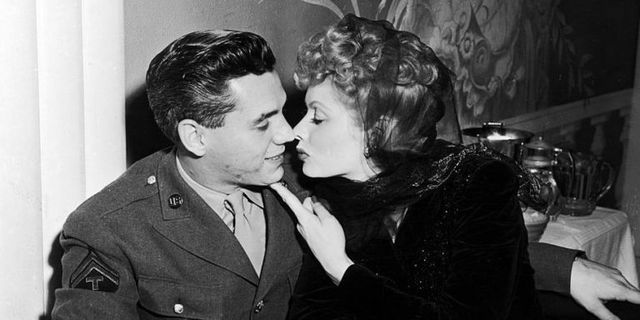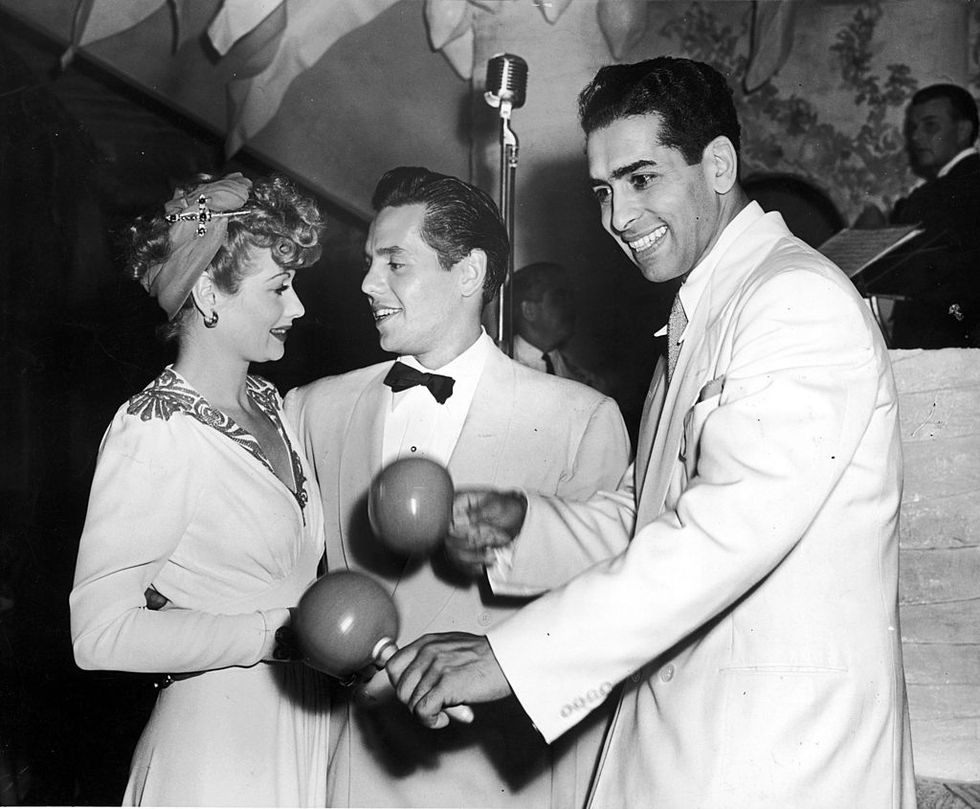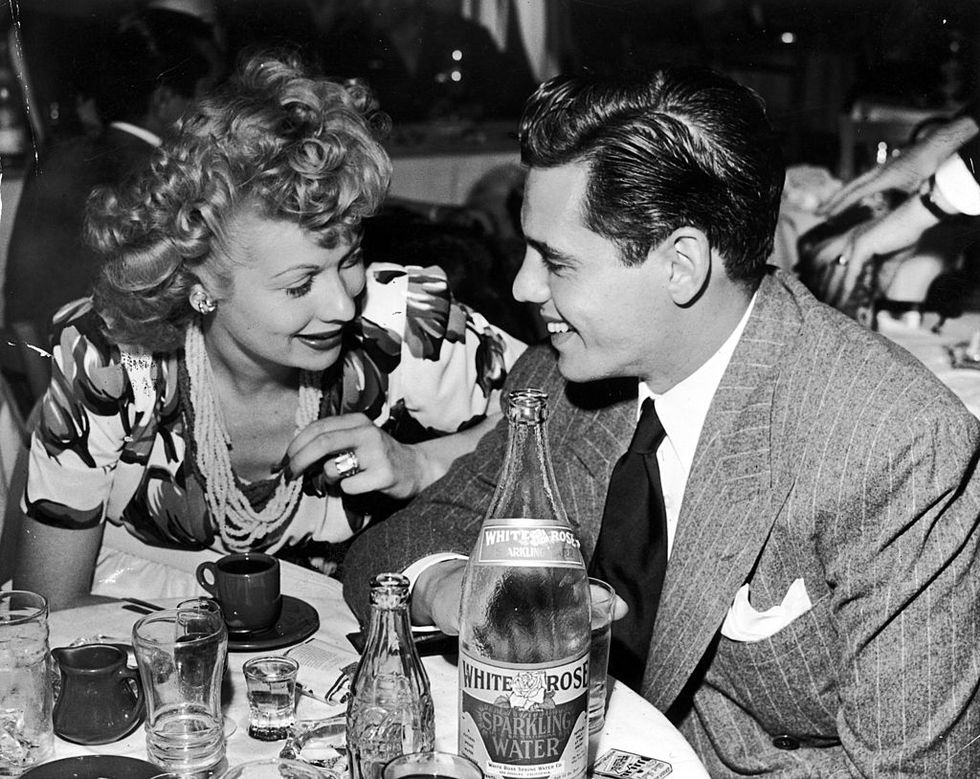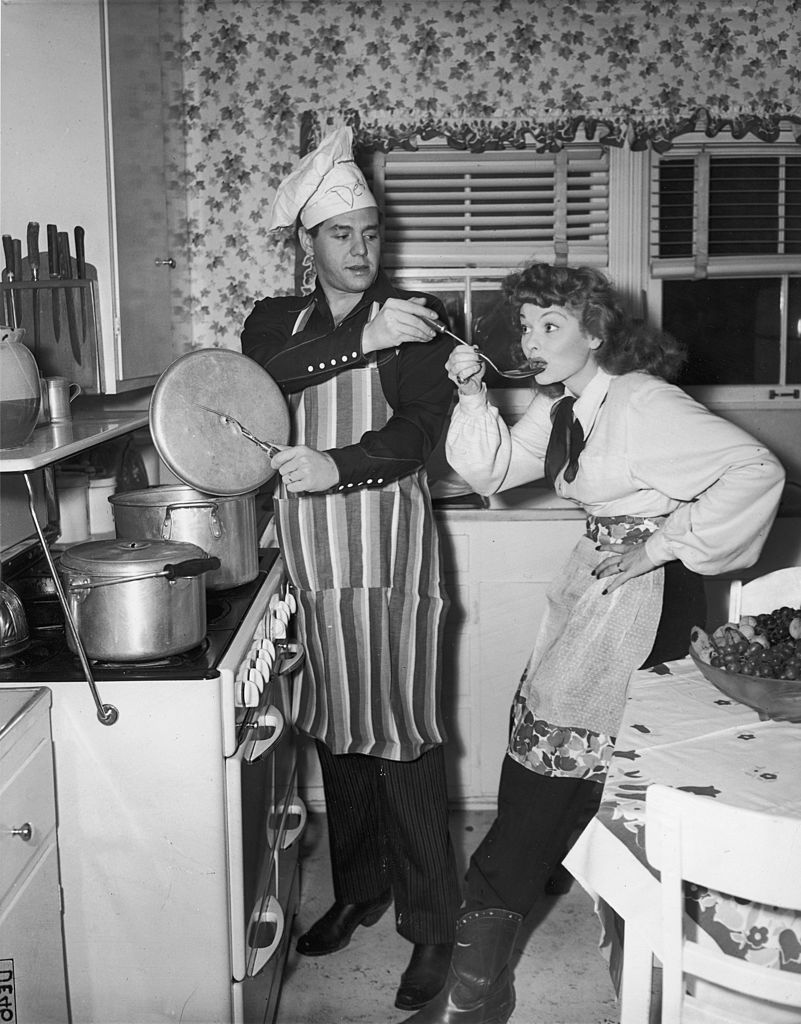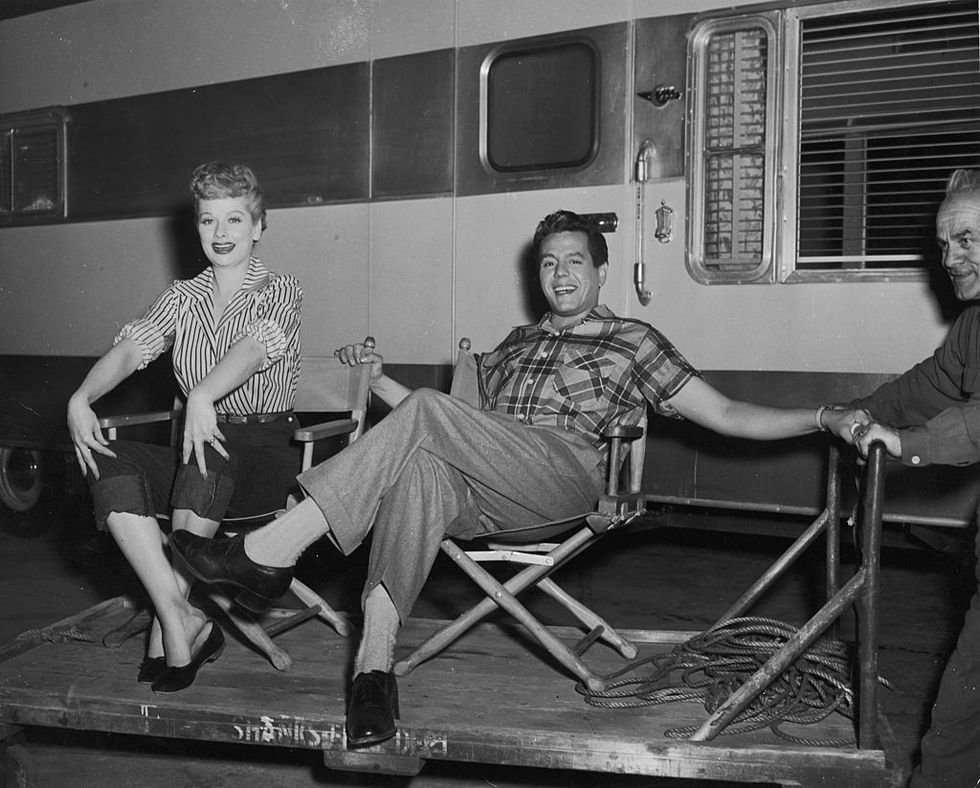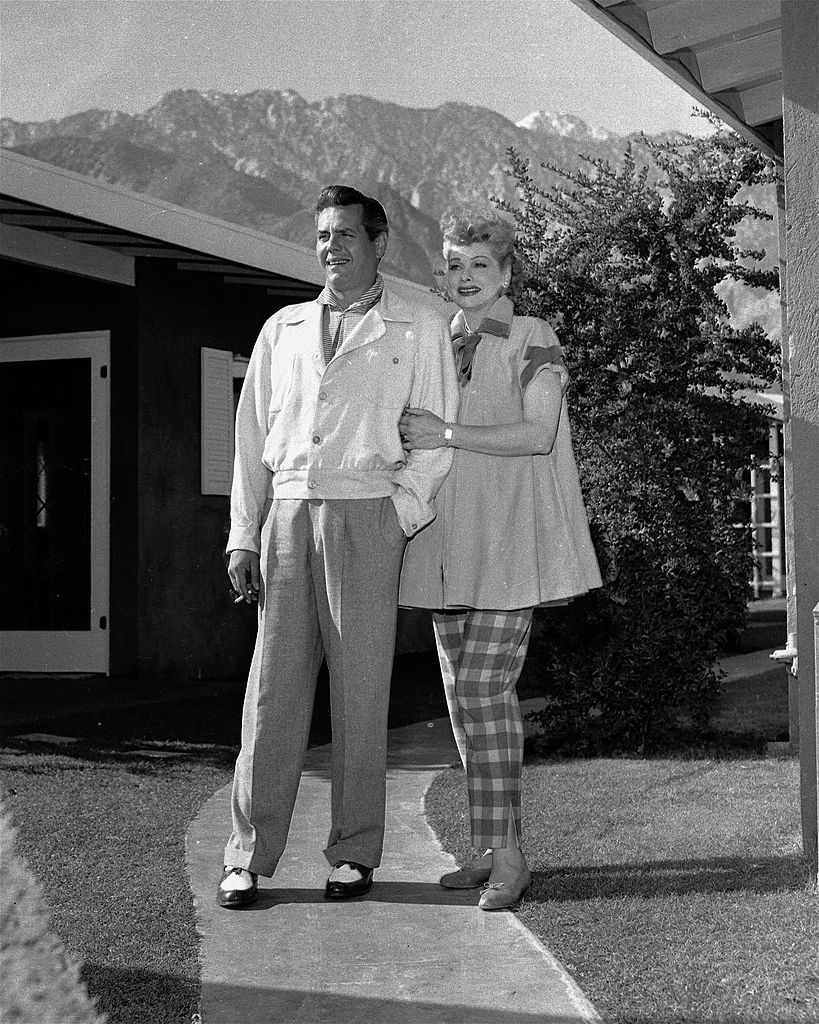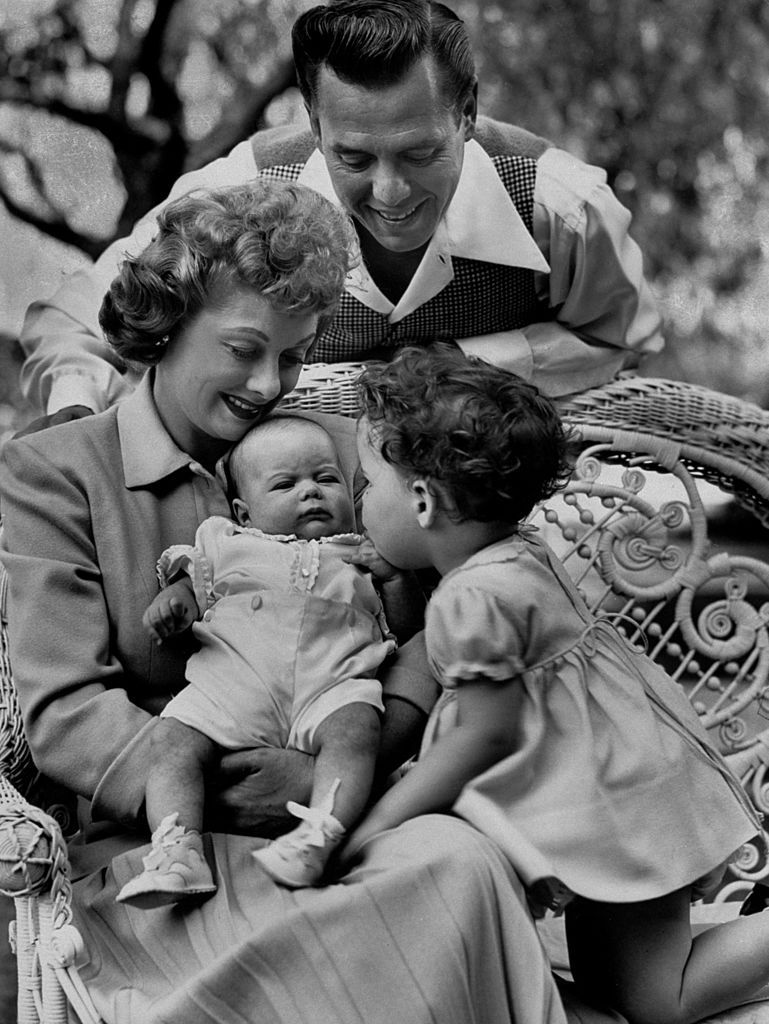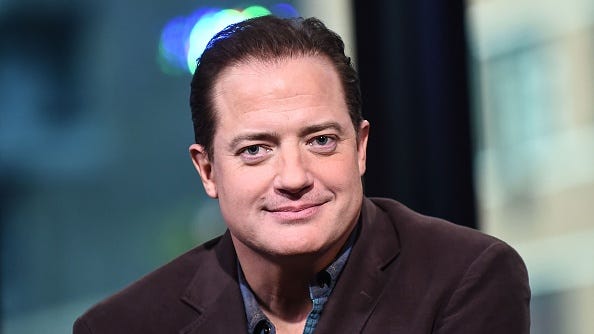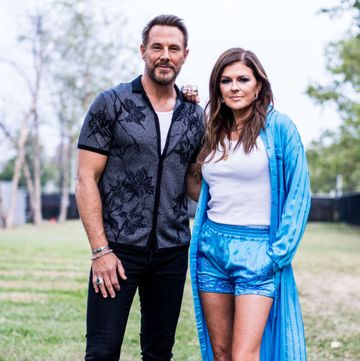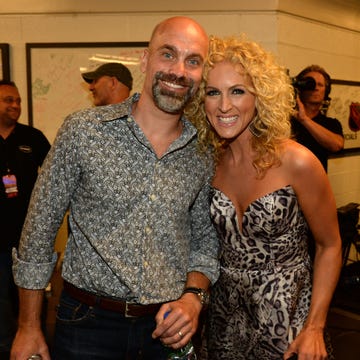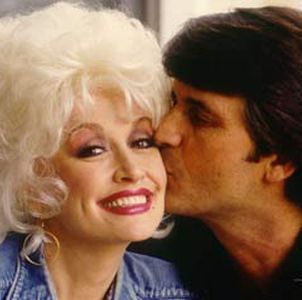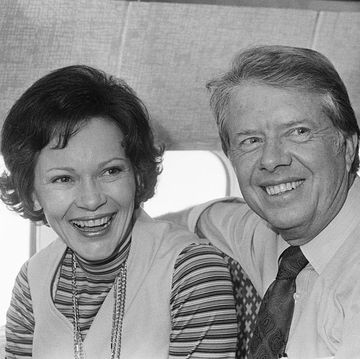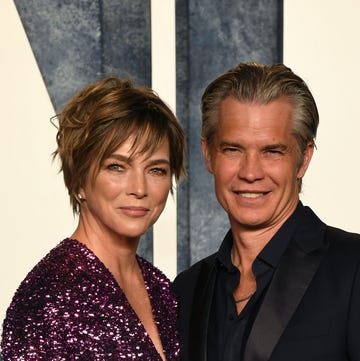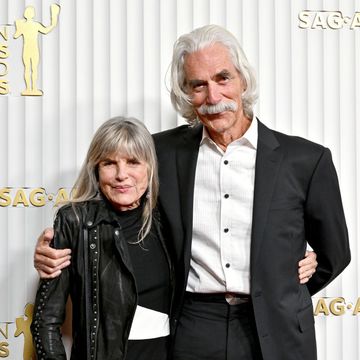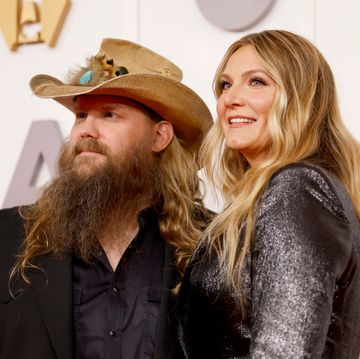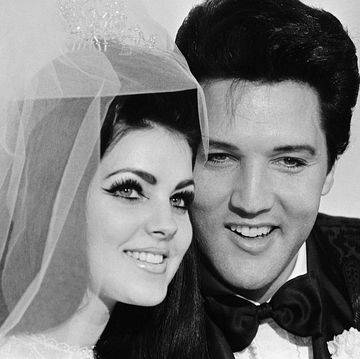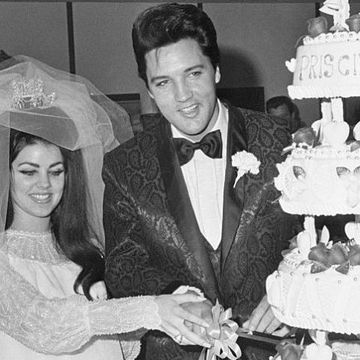The year was 1940. A fiery redheaded actress and a flirtatious Cuban musician found themselves undeniably attracted to each other, and the relationship that developed gave the American public not only groundbreaking entertainment, but one of the century's most passionate love stories.
Lucille Ball, 28, and Desi Arnaz, 23, met while filming the RKO Studios movie Too Many Girls (a fact that would come to be seen as an irony when Arnaz's womanizing played out later on). Desi, who had starred in the Broadway musical the film was based on, was a bandleader; Lucy was one of the film's stars. The match was unlikely from the start: She usually dated taller, older men and he was already engaged to someone else. They fell in love anyway.
From the start, friends say Lucy doted on Desi, eager to make him happy. If he wanted something, she'd get it. If they sat down together and he needed more space, she'd scoot over. "I found it surprising because she was such a strong, independent lady, but when it came to Desi, she was very old-fashioned," friend and actress Ruta Lee toldCloser.
After filming wrapped, Lucy embarked on a promotional tour and Desi went back to performing at nightclubs with his band. During this time apart, Lucy got wind that Desi had met up with his former lover, Betty Grable. She showed up at the home he shared with his divorced mother, berating him and calling him a "Cuban sonofabitch." Looking for a solution to their arguments, Desi suggested marriage. In November 1940, six months after they'd first met, the pair eloped.
Desi continued to tour and the extended absences began to take a toll on the newlyweds. Even when he wasn't on the road, his schedule had him out until 3 or 4 in the morning, while hers demanded she be in the makeup chair by roughly the same time. Lucy's longtime publicist, Charles Pomerantz, toldPeople, "She used to say, 'We just can't keep meeting in the Sepulveda tunnel.' And her strategy must've worked, because she got pregnant right away. She said she finally had him where she wanted him…for a couple of days."
Lucy's friends have said the actress suffered several miscarriages before the couple conceived their firstborn. They separated for a period of time in 1944 after Lucy filed for divorce, allegedly because of Desi's infidelity and drinking problem. They later reconciled after talking and agreeing to pursue more projects where their professional lives would intersect.
The golden opportunity came when CBS decided to turn the radio program Lucy had been starring in into a TV show. Executives weren't convinced when Lucy pitched her real-life husband to play the on-screen part, too—fearing Desi's heavy Cuban accent wouldn't jive with mainstream American viewers—but the Arnazes won them over by touring the country as a vaudeville act during the summer of 1951. Audiences loved it, and Lucy finally had her chance to keep Desi in one place.
"She knew that if he went on the road with the band, he'd be catting around all the time. She wanted him at home, where she felt the marriage would have a better chance of lasting, which of course it did," said Bob Weiskopf, who was one of Lucy and Desi's go-to writers back in the day.
In preparation for the show, the pair formed Desilu, the first-ever independent television production company. Ever the savvy entrepreneur, Desi convinced CBS to produce the show on film—an unconventional move for a time when reruns were unheard of—and haggled for ownership of all episodes, presumably to share with the couple's future children. He later sold them back to CBS for millions. All told, Desilu's profits reached $5 million by 1961.
The beginning of their hit show coincided with a new chapter in the couple's personal lives, too. They became parents to little Lucie on July 17, 1951, three months before the show's premiere. Lucy's friends would later say that the actress believed having a baby would strengthen the couple's bond. It did, for a little while. "Some of Desi's womanizing was alleviated from the moment little Lucie was born," said biographer Bart Andrews, who's authored three books on the couple.
I Love Lucy debuted in October 1951. It wasn't long before 40 million viewers were tuning in each week to see what the Ricardos were up to. In 1953, when Lucy became pregnant with the couple's second child, Desi Jr., the show became the first in history to depict a pregnant woman.
Director William Asher recalled seeing a certain tenderness from Desi during those episodes. "When they were having the baby and we did the show about the birth of Little Ricky, Desi was terribly emotional about her," Asher told People in 1991. "He really was crazy about her. You could feel how they felt."
The success of the show, however, came with a price. As Desi would later reveal in his memoir, the pressures of running a production company, coupled with the insecurities of what his daughter would later call being "Mr. Ball," pushed him towards alcohol. After 20 years of marriage, Lucy could no longer tolerate Desi's drinking habit and infidelities, which had never fully subsided. She divorced him in 1960.
Yet even after the marriage and show ended, and they each married other people, Lucy and Desi remained close. Friends said neither one ever got over their breakup. "They spoke so lovingly of each other, you almost forgot they weren't together anymore," said Lucy's good friend, theater actress Carol Channing.
Before his death in 1986, Desi's last words to Lucy were, "I love you too, honey. Good luck with your show."
